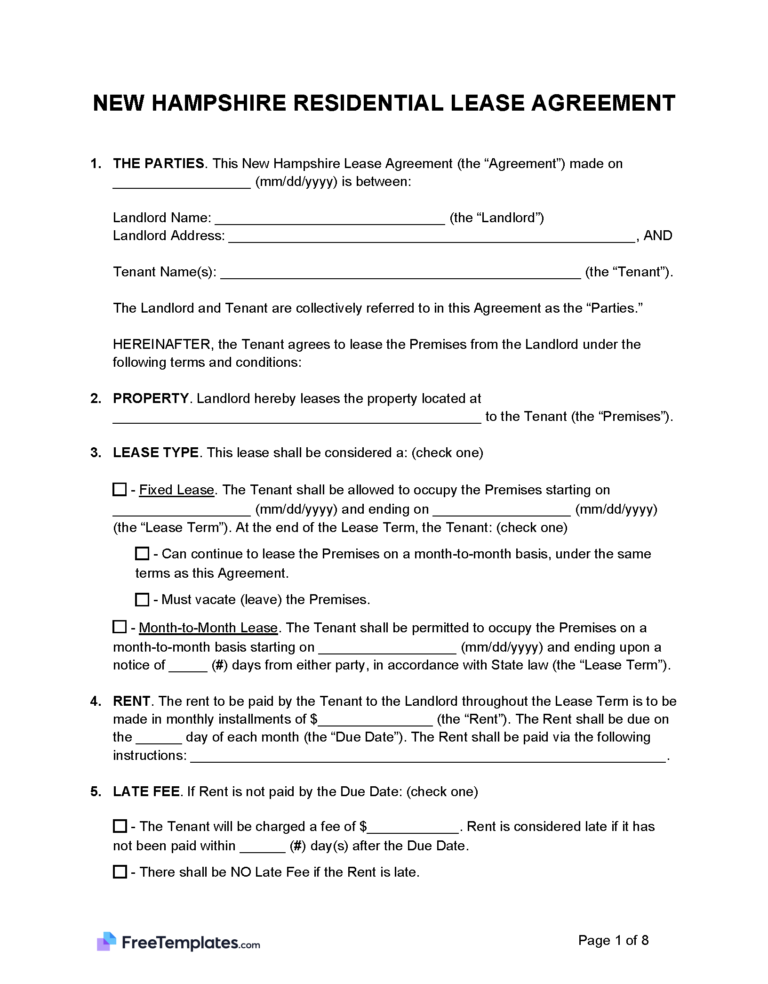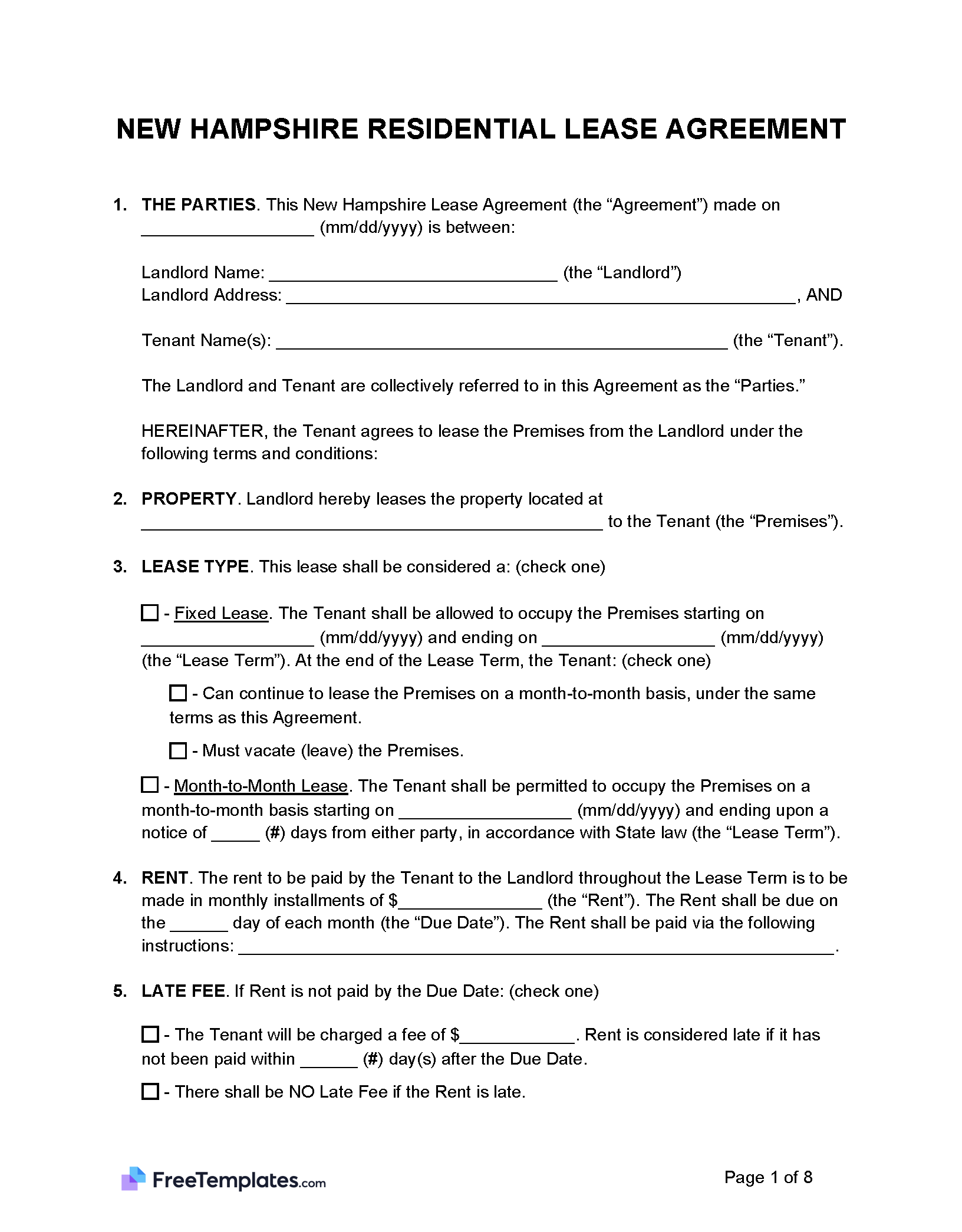By Type (6)
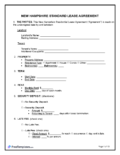 Standard Lease Agreement – This outlines the full terms of the contract for an individual looking to rent a residential space. Standard Lease Agreement – This outlines the full terms of the contract for an individual looking to rent a residential space.
|
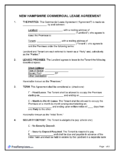 Commercial Lease Agreement – This is a contract for any business looking to rent an office, retail, or industrial building. Commercial Lease Agreement – This is a contract for any business looking to rent an office, retail, or industrial building.
|
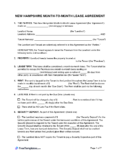 Month-to-Month Lease Agreement – A contract that has the ability to be voided after 30 days by either the tenant or landlord. Month-to-Month Lease Agreement – A contract that has the ability to be voided after 30 days by either the tenant or landlord.
|
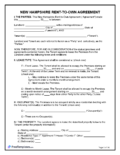 Rent-to-Own Agreement – A contract between a tenant and landlord that has the added benefit of the ability to purchase the property. Rent-to-Own Agreement – A contract between a tenant and landlord that has the added benefit of the ability to purchase the property.
|
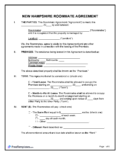 Roommate Agreement – An agreement between members of a shared unit to outline the duties of their rental space. Roommate Agreement – An agreement between members of a shared unit to outline the duties of their rental space.
|
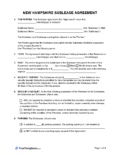 Sublease Agreement – With the landlord’s permission, this is used when a tenant re-rents their space to another individual. Sublease Agreement – With the landlord’s permission, this is used when a tenant re-rents their space to another individual.
|
Disclosures (3)
Lead-Based Paint Disclosure – If a property was built before 1978, all tenants must receive a lead paint disclosure, alerting them to the possibility of toxic paint being present. (EPA/HUD Fact Sheet)
Repair Notice – If the rental property is in need of repair, then the landlord must notify the tenant within five days of occupancy. (§ 540-A:6(I)(c))
Security Deposit Receipt – The tenant must be given a signed security deposit receipt unless the deposit was made via a bank, government-issued, or personal check. (§ 540-A:6(I)(b))
Security Deposit
Maximum Amount – A landlord may charge a security deposit equal to one month’s rent or $100, whichever is greater. (§ 540-A:6(I)(a))
Returning to Tenant – The security deposit must be returned to the renter within 30 days of the lease end. (§ 540-A:7)
Itemized List – If the security deposit is not returned to the tenant in full, a list must be provided, itemizing each deduction. (§ 540-A:7)
Receipt – A written security deposit receipt must be given to any renter unless they pay with a check. (RSA 540-A:6(I)(b)
Interest – Any interest earned on the security deposit must be returned to the tenant. The interest amount must equal that of a regular bank in New Hampshire’s savings account, savings and loan association, or credit union. (RSA 540-A:6(IV)(a))
Landlord Access
General Access – The landlord has a right to enter the rental property for a legitimate reason and if they give adequate notice. (§ 540-A:3(V))
Emergency Access – In an emergency, the landlord is permitted to enter the rental unit without giving the tenant notice. (§ 540-A:3(V-d)(a))
Paying Rent
Grace Period – Rent is due on the day agreed to in the lease agreement; therefore, there is no grace period if the tenant is late paying rent.
Maximum Late Fee – There is no maximum amount a landlord may charge their tenant for paying rent late; however, this must have been written in the original agreement.
Returned Checks (NSF) – No specific law outlines the amount a tenant may be charged if they write a bad check.
Withholding Rent – A tenant may withhold rent if their rental unit is in need of repair and the condition violates the standards of fitness for health. (§ 540:13-(I))
Reasons for Eviction (4)
Leaving Before the End Date – If the landlord suspects that their renter has abandoned the unit, they may post and serve a notice of abandonment, which gives the tenant 7 days’ notice before eviction. (§ 540-A:4(XII))
Lockouts – A landlord has no right to lock out or change the locks on their renter. (§ 540-A:3(II))
Non-Compliance – If a renter does not comply with the terms of the agreement, they may be given a 30-day notice to quit or comply. The landlord may serve a 7-day notice to quit or comply for serious and severe violations. (§ 540:3(II))
Non-Payment of Rent – If a renter does not pay their rent on time, they may be given a 7-day notice to quit or pay. (§ 540:3(I))
